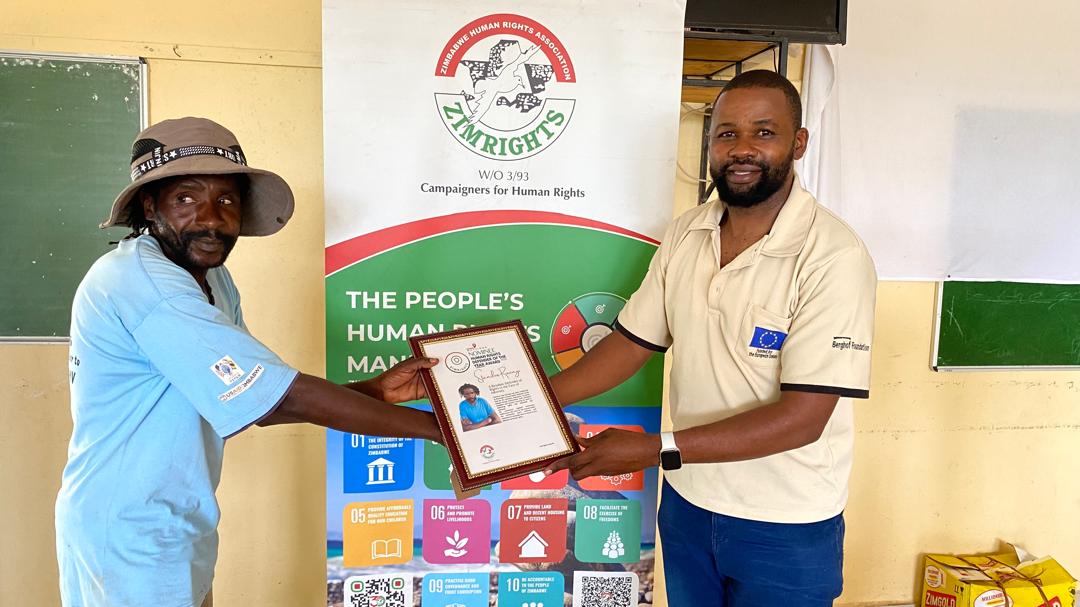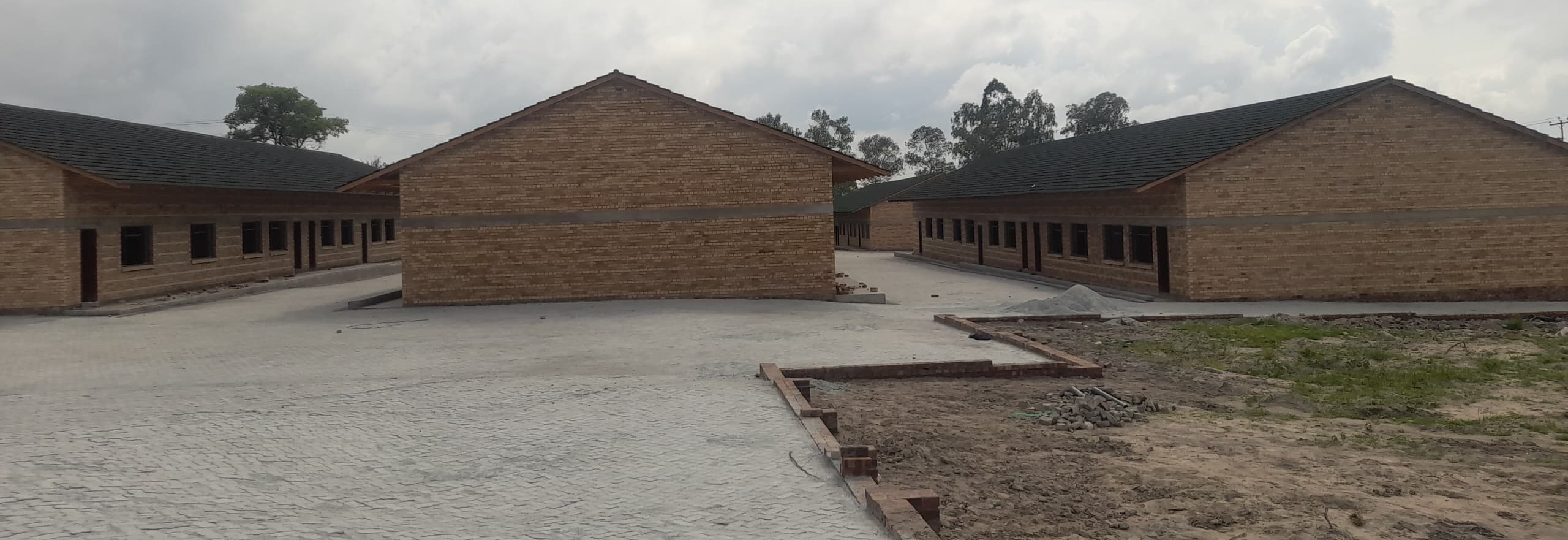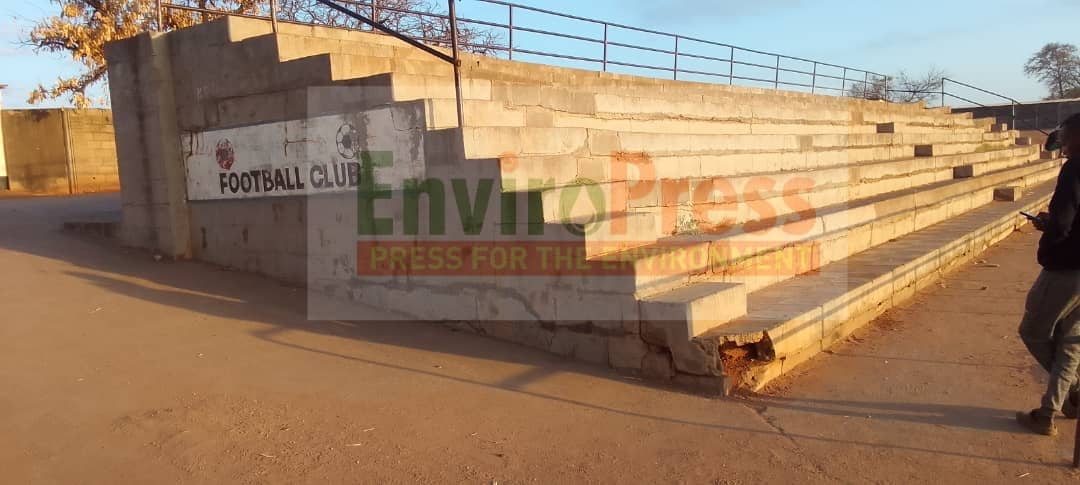Moses Ziyambi
Families in the resettlement areas surrounding the iron mines in Manhize where Dinson Iron and Steel Company (Disco) is building a steel manufacturing plant are resisting the slow but systematic evictions being effected by the company.
Disco, which is a subsidiary of Chinese steel giant Tsingshan Holdings Group, is extracting iron ore in Manhize Range in Mashonaland East province. The company is also building a steel processing plant and a power plant in Mushenjere and Kwaedza villages of Nyikavanhu area of Chirumhanzu Rural District Council, Ward 15, in the Midlands province.
Tapfumanei Nzombe, a resident of Mushenjere village, said Disco public relations officer Joseph Shoko, in the company of three other staff members of Chinese origin, visited him at home on November 06 to ask him to move out.
“I reasoned with them that moving out at this point would be immature since we are yet to get the results of the property valuations that were facilitated by the Ministry of Lands. The results will determine the amount of compensation that each household must receive. So I was very firm with them that I will not move until due process is complete,” said Nzombe.
The 84-year-old widower, who lives with two nephews, said the community had been victimized enough and villagers will not take it anymore.
“They break every promise they make and we have lost almost everything. Our fields and grazing areas have been fenced-off and this means we are again not able to till the land this farming season, and this is our third year in this situation,” said Nzombe.
He said government settled him and other villagers 39 years ago when it purchased the farm which used to be owned by a white man.
“We got here in 1984 from the Neshangwe area of Chikomba district. We were settled properly by the government and it would be unfair to eject us without paying fair compensation. There are many families that have already been moved and they are suffering at their new place,” he said.
Other villagers corroborated Nzombe, saying not even one of the several dozen families that were moved were happy with the treatment they got.
“The land onto which they want to relocate us is not fertile and there is no easy access to potable water. The houses that Dinson built are substandard and no fair compensation was paid,” said another villager who preferred anonymity.
When contacted for comment, Shoko denied pressuring villagers to move, saying it was not true that he recently visited Nzombe or any other villager.
“This is absolutely false information. In fact, if there is any relocation taking place, we build first and we enlist the help of the District Development Coordinator (DDC) to engage the affected communities. It’s not like as a company we instruct a family to relocate,” Shoko wrote back in response to questions that EnviroPress sent him.
On his part Chirumhanzu DDC Joram Chimedza said government’s position was that all properly-settled people as those of Mushenjere had to be relocated procedurally.
“Our position is that people are moved in a procedural manner following all processes stipulated by government. The process of valuations is ongoing and alternative land has been found close by. Neither the company nor anybody else should ignore these processes that have been put in motion so we will find out if what is being alleged has indeed happened and we then know the course of action to take,” said Chimedza
However, a report by the Centre for Research and Development (CRD) points to a distressing situation on the ground.
“Some 14 families were moved from Mushenjere and Kwaedza villages to a paddock area reserved for animal grazing at Rusununguko Farm between November and December 2022 without due process. This angered residents of Rusununguko who complain that the new arrivals were resettled on grazing land.
“In a similar fashion, two more families were moved from Mushenjere village to the margins of Kwaedza and Mujuta villages in the first week of August 2023. Victims of forced relocations interviewed by CRD in Tradou and Singleton farms pointed out that Disco rushed to build substandard houses for them in Singleton and pegged them at US$20 000 for each plot holder,” the report says.
CRD is a civil society organization which is working to protect the rights of the affected villagers while holding authorities to account.
The organization, which has previously worked to defend the rights of people displaced by diamond mining companies in Marange, says some 101 families from Mushenjere village have lost farming and grazing land since 2021.
“Some 138 families from Kwaedza village are in a similar predicament as Disco has already set pegs in their village. These villagers mainly originated from poor and densely populated communal areas of Rukovere, Mahusvu, Msasa, Unyetu villages of Chikomba district.
“By capturing and destroying agricultural land of traditional communities in Manhize without their consent, and without securing alternative livelihoods, Disco has created conditions for forced relocations in violation of international human rights law,” the reports says.
“Government awarded Disco an open-ended lease to mine iron ore and set up a US$1.5 billion steel plant on 12 270 hectares of land in Manhize area but prior to that, the company had already started extracting iron ore at Tradou Farm in 2022 while setting its iron ore processing plant in Mushenjere and Kwaedza villages. During this period, Disco fast-tracked relocation of six families to Singleton Farm near Chivhu without memorandum of agreement on issues of compensation and secured livelihoods on relocated land,” the report says.
Manhize villagers lament displacement as steel company seizes new land







